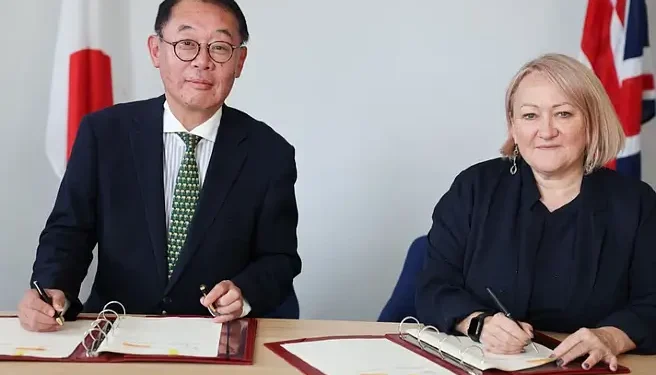The UK Atomic Energy Authority (UKAEA) has announced a new Memorandum of Cooperation between the UK and Japan, aiming to advance fusion energy development.
This partnership is set to enhance research, regulation, and workforce skills, potentially transforming the UK’s energy landscape and creating high-tech jobs.
Strengthening International Collaboration
The recent agreement between the UK and Japan marks a significant step in international cooperation for fusion energy development.
By focusing on research and development, regulatory frameworks, and workforce skills, this partnership aims to accelerate the commercialization of fusion energy in the UK.
The collaboration builds on existing ties between UK and Japanese scientists, reinforcing their commitment to tackling global energy challenges together.
Fusion Energy’s Potential
- Could provide a nearly limitless low-carbon power source
- May reduce reliance on fossil fuels in the UK
- Supports climate goals by offering sustainable energy solutions
- Promotes growth in high-tech manufacturing sectors
- Aims to develop a skilled workforce for future fusion projects
The Role of Kyoto Fusioneering
Kyoto Fusioneering’s decision to relocate its UK headquarters to the Culham Campus underscores the UK’s growing status as a hub for fusion innovation.
This move not only strengthens the UK’s fusion ecosystem but also signals increased foreign direct investment in its high-tech energy sector.
Such developments are expected to boost regional economies and foster innovation clusters beyond traditional industries.
Economic Opportunities Ahead
- Creation of new high-tech jobs in the fusion industry
- Strengthening of local economies near research sites like Culham Campus
- Increased opportunities for education and employment in related fields
- Paving new career pathways through skills development initiatives
- Enhancing UK’s position as a leader in global clean energy transition
A Historical Perspective on Fusion Cooperation
This announcement builds upon previous collaborations between the UK and Japan, such as joint ventures like Tokamak Energy and Furukawa’s magnet technology manufacturing.
The partnership aligns with the UK’s broader climate commitments and industrial strategy, aiming to establish itself as a global leader in fusion by 2030. The ongoing investments at facilities like JET and MAST Upgrade further demonstrate this commitment.
Additional Reading
Wrapping Up
The UK-Japan Memorandum of Cooperation represents an important milestone in advancing fusion energy technology.
By fostering international collaboration, it promises significant economic benefits while supporting climate goals.
As both nations work towards commercializing fusion power by 2030, this partnership could redefine Britain’s role within global clean energy initiatives.
Sources: UK Government, UK Atomic Energy Authority, and UKAEA Newsletter.
Prepared by Ivan Alexander Golden, Founder of THX News™, an independent news organization delivering timely insights from global official sources. Combines AI-analyzed research with human-edited accuracy and context.









